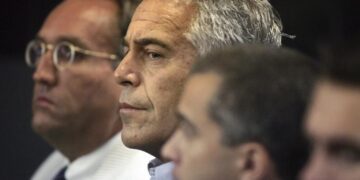An op-ed published first in Crain's Chicago Tuesday am by Marty Ozinga, President of Ozinga Bros -
Fifty years ago, 116 delegates from 58 state senatorial districts were elected to represent the citizens of Illinois to draft a new state Constitution. My grandpa, Martin Ozinga Jr., was proud to be one of those delegates. One important part of that Constitution was the language limiting the power of the state government to tax its citizens. After much debate, the current state income tax structure was adopted as part of the Illinois Constitution, making it very difficult to change without the approval of a significant majority of the citizens of Illinois. This flat tax structure has been in place ever since. The wisdom of that decision is on the ballot this November.
My grandpa made the argument from the floor that government couldn’t be trusted to keep its word that it would limit the extent as to how many people a graduated tax rate would affect. He reminded people that the federal government’s original income tax was a single digit percentage tax and the government gave assurances at the time that it wouldn’t ever be much more than that. We know how that worked out. He pointed out that government, left unchecked, would continue to tax its citizens more and more.
Today, there are promises being made that the so called “fair tax” will only affect a small number of higher income residents, that the middle class and lower income earners will not be affected. The likelihood of this being true indefinitely is extremely low. Even if you were inclined to trust what our Springfield politicians are saying about it, those making promises today will not be the people in power tomorrow.
My grandpa wisely had reservations about giving Springfield too much taxing power. He had a saying, “If the outgo exceeds the income, the upkeep will be your downfall.” The state of Illinois has an “outgo” problem and Springfield is trying to solve it off the backs of an already overtaxed citizenry. We can’t expect our citizens to be positively impacted for generations to come if the government keeps weighing them down with a heavier tax burden.
The problem with higher taxes is that people have options as to where they can live. Illinois has already lost more residents than any other state in the country. This amendment will only accelerate that trend, particularly with individuals and small and mid-sized businesses that generate a lot of much needed income tax for Illinois. Illinois needs more taxpayers not higher tax rates. For those who are on a fixed income, like many of our seniors, the prospect of higher tax rates is especially concerning.
When it comes to voting this fall, I’m going to stick with the wisdom of my grandpa and the others who wrote our state’s Constitution and keep the onus on Springfield to solve its financial issues by making the state more attractive to live and do business here in conjunction with getting its spending under control. I will vote "no" on the proposed "fair tax" for Illinois.
Marty Ozinga is president of Ozinga Bros., a concrete and construction materials supplier based in Mokena.







